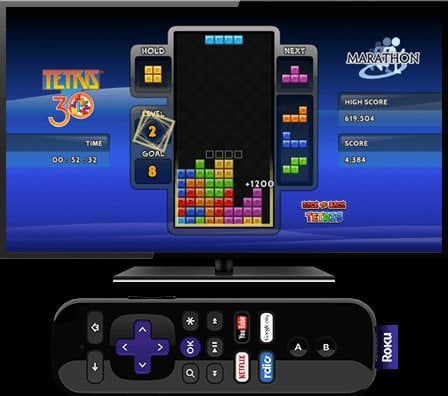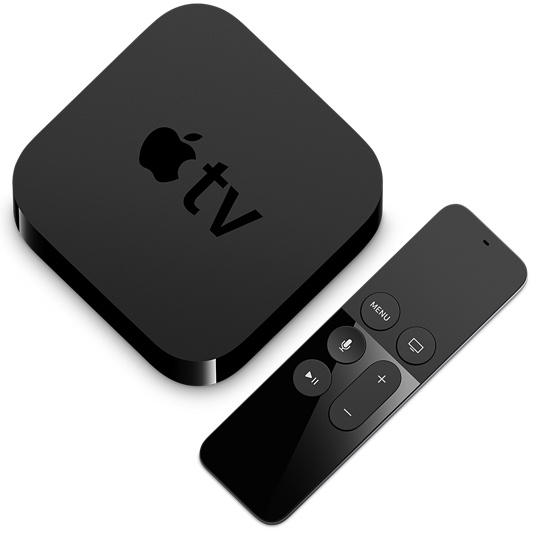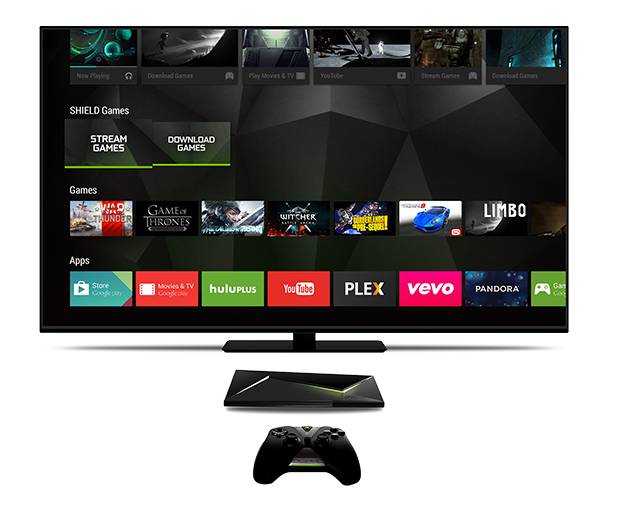Foolishly, I believed in the power of Apple TV gaming. Whoops! The number of 4th generation Apple TVs that have been sold is not known – and if it was any kind of earth-shattering amount, Apple would probably let us know. As of now, they’re seen as running in 4th in the streaming device market. As well, developers informally polled have given zero indication that Apple TV is a moneymaker for them at all. There’s little sign that the Apple TV, nor gaming, has done well. I was perhaps the biggest cheerleader for TV gaming, and, well, I might have bet on the wrong horse. But like a gambler who thinks that the next hand is the big score, I remain somewhat optimistic of a future where Apple TV gaming is a viable force for developers, even if there would have to be some major changes in Apple’s tactics.
First off, Apple has to convince people to actually buy the damn things. It turns out that Apple can’t just release an intriguing product and have it sell at this point in time. That, or they just released a product with no actual market. To be honest, it’s easy to see why someone wouldn’t buy the Apple TV. Cheap streaming sticks like the Chromecast, Fire TV Stick, and Roku Streaming Stick exist and cost a fraction of the Apple TV. If you need advanced features like Ethernet, SPDIF audio output, 4K and HDR support, the Shield TV, Fire TV, and Roku 4 are in your orbit. Even Amazon and Roku in the cheap end of the market have the benefit of the Amazon Prime access that Amazon has restricted from Google and Apple’s TV products. Heck, the 2nd and 3rd generation Apple TV models still play Netflix well enough.
So, the reasons to buy an Apple TV are basically the Siri Remote, being tied into the Apple ecosystem already, and perhaps needing AirPlay? But AirPlay has its shortcomings, particularly in comparison to Google Cast where the mobile device is independent from what’s being casted. Google Cast even has advanced features like high-resolution audio support, where many AirPlay devices are left to CD-quality audio. Again, Apple has created a product where there’s no obvious standout feature to buy it. It’s a power-user product without power-user features.
And if you are a power-user wanting advanced features, the Nvidia Shield TV has been the leader there. It’s not really lacking anything in terms of features or content that you can’t get on Apple TV. Even on the gaming side of things, where there’s plenty of controller-compatible games…and oh yeah, emulator support. Plus, there’s the PC game streaming feature, and the recently-added Plex Media Server support is a killer addition. Nvidia has been supporting the Shield TV with various ports, and while it’s possible these are a loss-leader for the platform, at least Nvidia is putting effort into getting content on the Shield TV. More importantly, it’s a visibility factor – people considering the Shield TV know that Nvidia is going to support it. With the Apple TV, there’s little visible support from Apple. Nvidia is more of a ‘gamer’ company, and that shows. The Android TV ecosystem has its flaws – some apps work, others kinda do for no particular reason – and it seems like there should be more hardware out there. Though, expensive streaming boxes start to get into the range of the Xbox One S in price. But still, however you shake it out, the Apple TV is in a weird, lacking middle between mass market attractiveness and appealing to power users with a more capable product.
So how does Apple change their fortune? The first step is going to be getting exclusive content that can sell Apple TVs. There’s word of television productions that Apple is doing, but they’re playing from behind in comparison to Netflix, Hulu, and Amazon. They may have to work to convince major services to give up Apple exclusives. My hypothesis is that if they could convince ESPN to launch an HBO NOW style over-the-top service, it would be a titanic move. Perhaps not as big as it once was, with Sling having ESPN, but still. Live sports are often the big sacrifice that cord-cutters have to give up. Live sports draw massive ratings still, in part because by their nature, people can’t skip them. Make a cable-free ESPN an Apple TV exclusive, and see what happens. Drawing exclusive streaming rights to some shows, or even getting live NFL games, as a way to bolster a TV service might be a good start too. But the point is that while it might not be the most consumer-friendly move, Apple needs to bolster the Apple TV userbase for their own sake. Get the users there, and I think a trickle-down effect can happen with getting people to play games on Apple TV. Hey, it worked for mobile gaming, where few people bought them specifically as gaming devices, but now Candy Crush Saga (Free) is major business.
Second, Apple needs to fight in the mass market with a streaming sticket. The fact is that all their competitors in the TV box market have a budget-priced, entry-level option that work really well. Apple is completely punting on this market by not making a streaming stick that would get people in the Apple ecosystem. This doesn’t preclude games from showing up on it, either – the Fire TV Stick has games and is compatible with controllers. Getting even a less-powerful mass-market box out there would be helpful to Apple’s standing in the TV box market, and to the developers releasing apps.
Third, I think Apple needs to break down the barriers between games and media. Apps are in a separate section from TV shows and movies on the Apple TV. Now, I’m in a weird position because I’m media and have my finger closer to the pulse with when games launch. But I will say that I rarely need to open the Apple TV App Store. The idea needs to be that when people using the Apple TV to be entertained, games need to be served up as an entertainment option.

Fourth, Apple needs to cultivate the games market. This is perhaps my most outlandish idea – Apple has shown little interest in doing this in an outward way. But working to get exclusives, even timed exclusives, and making a big stink about them, perhaps by investing in intriguing indie games in exchange for limited-time exclusivity, could help. Get the Apple TV on the radar of everyone as a gaming product. Even the mobile gaming media, sparse though we may be, we have little reason to care about Apple TV gaming right now as a practice instead of as a theory.
I will admit that all of these things are likely a pipe dream. The introduction of Sling at WWDC was a major warning sign that a rumored exclusive TV service wasn’t happening. And rumors are abound that Eddy Cue was not good at working with studios in getting that content. And Apple, really, became a major gaming company somewhat by accident with the App Store, where they’ve largely reacted to trends rather than acting. But the thing that’s scary for them is that it’s easy to see where a future rises up where all the key players in the TV space providing the content that people want don’t need Apple. Users have shown that while they’ll buy into the Apple ecosystem if need be, it takes more than a fancy remote to convince them to keep buying Apple products. And ask anybody producing the content, even if they have qualms with Apple, would they rather make apps and games for the cohesive platform solutions they offer, or for the chaotic situation that is Android…or even a non-Android solution? It’s quite possible that gaming’s future would suffer, or that possible advances in gaming culture – even possibly the idea that you have to own a particular piece of hardware to play a game – are set to suffer because Apple can’t figure out how to sell their TV boxes. And really, I can’t give you a good reason to buy one, either.

